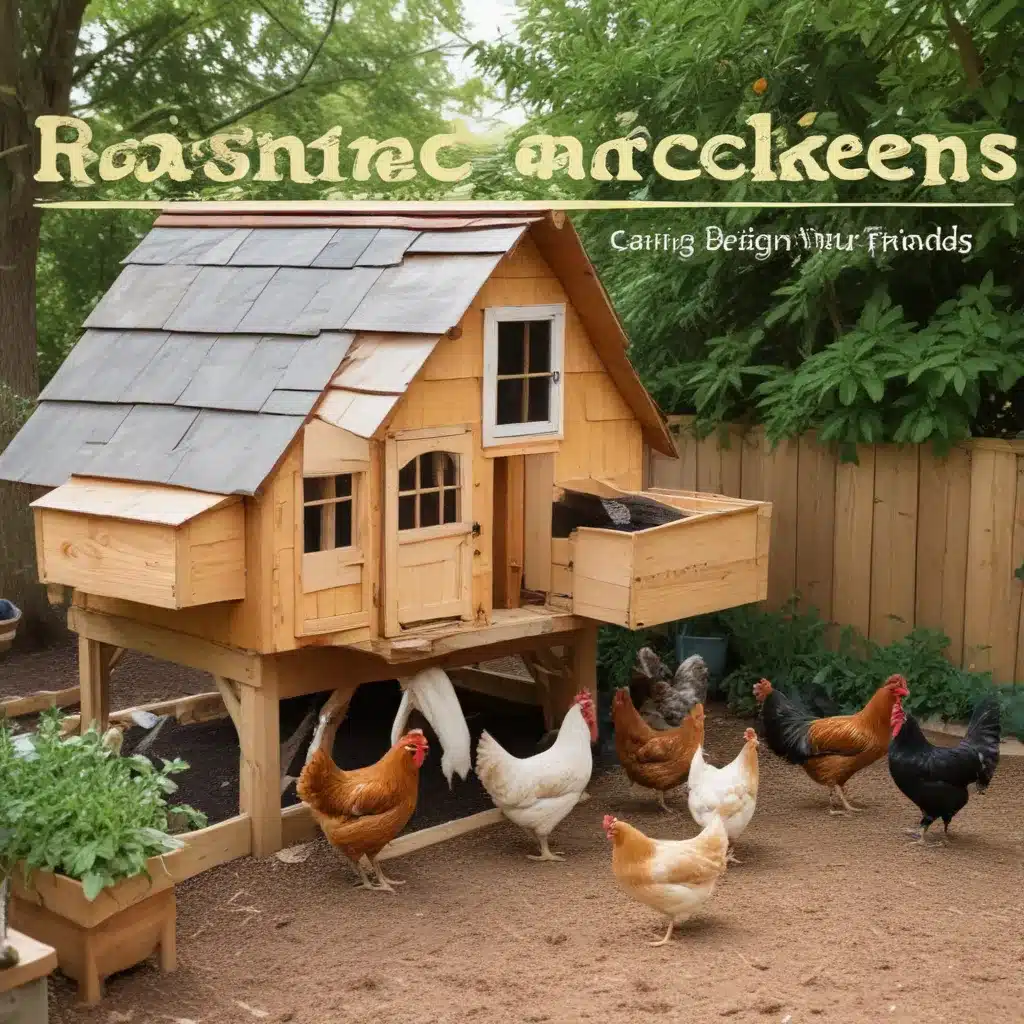
Are you dreaming of collecting fresh eggs from your own backyard flock? Raising chickens can be an incredibly rewarding and educational experience for the whole family. From designing the perfect coop to providing the best care for your feathered friends, there’s a lot to consider when embarking on your backyard chicken journey.
At Crooked Pines Farm, we’ve honed the art of chicken husbandry over the years, and we’re excited to share our insights with you. Whether you’re a first-time chicken keeper or an experienced hand, this comprehensive guide will equip you with the knowledge to create a thriving backyard chicken setup.
Chicken Coop Design
The heart of your backyard chicken operation is the coop – it’s where your flock will spend their nights and seek shelter. When designing your chicken coop, there are several key factors to consider:
Coop Structure
Your coop should provide ample space for your chickens to move around comfortably. Aim for a minimum of 4 square feet of floor space per bird. The coop should be tall enough for you to stand upright inside, making cleaning and maintenance easier. Incorporate nesting boxes and roosting bars to give your chickens a secure place to lay eggs and rest.
Ventilation and Insulation
Proper ventilation is crucial to maintain a healthy, odor-free environment. Utilize windows, vents, and strategically placed openings to ensure a constant flow of fresh air. Insulate the coop walls and roof to regulate temperature and protect your flock from extreme weather conditions.
Nesting Boxes and Roosting Spaces
Provide your chickens with comfortable nesting boxes, approximately one box per 4-5 hens. Line the boxes with a soft, absorbent material like straw or wood shavings. Roosting bars should be placed 12-24 inches off the ground, allowing your chickens to perch comfortably.
Chicken Care Essentials
Caring for a backyard chicken flock involves more than just providing a cozy coop. Proper nutrition, hydration, and grooming are essential for the health and well-being of your feathered friends.
Feeding and Nutrition
A balanced diet is crucial for your chickens’ growth, egg production, and overall vitality. Offer a layer feed formulated to meet their nutritional needs. Supplement with scratch grains, fresh greens, and kitchen scraps to provide a varied and nutritious diet. Ensure they have access to clean, fresh water at all times.
Water Provision
Keeping your chickens’ water source from freezing in the winter and staying cool in the summer is a crucial task. Utilize insulated or heated waterers to maintain a consistent water supply. Regularly clean and refill the waterers to prevent bacterial growth.
Grooming and Hygiene
Chickens are relatively low-maintenance when it comes to grooming, but regular inspection and basic care can go a long way. Trim their beaks and nails as needed, and provide a dust bath area for your chickens to clean themselves. Maintain a clean, dry bedding layer in the coop to promote good hygiene.
Chicken Breeds and Selection
With so many chicken breeds to choose from, it can be overwhelming to select the right ones for your backyard flock. Consider factors like egg production, temperament, and cold/heat hardiness when making your decision.
Common Backyard Breeds
Some of the most popular and well-suited backyard chicken breeds include the Rhode Island Red, Orpington, and Australorp. These breeds are known for their reliable egg-laying abilities, adaptability to various climates, and generally calm demeanors.
Breed Characteristics
Rhode Island Reds are renowned for their high egg production, laying up to 200 eggs per year. Orpingtons are known for their large size, docile nature, and cold-hardiness. Australorps excel at egg-laying and thrive in both hot and cold conditions.
Health and Wellness
Keeping your backyard chickens healthy and happy should be a top priority. Preventative measures and proactive monitoring can help you identify and address any potential issues early on.
Preventative Measures
Vaccinate your chickens against common diseases, and implement a robust pest control regimen to prevent infestations. Ensure your coop design minimizes the risk of injuries, such as providing adequate nesting boxes and roosting spaces.
Illness Identification and Treatment
Be on the lookout for signs of respiratory infections, parasitic infestations, and egg-laying difficulties. Familiarize yourself with common chicken health issues and work closely with a veterinarian to provide the appropriate treatment.
Outdoor Run and Pasture Management
Providing your chickens with access to an outdoor run or pasture can enrich their lives and give them the opportunity to exhibit natural behaviors, like foraging and dust-bathing.
Run Design and Construction
When building an outdoor run, allow for at least 10 square feet of space per bird. Utilize sturdy fencing and predator-proof the area to keep your flock safe. Choose a substrate like wood chips or gravel, and incorporate vegetation to provide shade and stimulation.
Pasture Rotation and Foraging
Rotate your chickens through different sections of your pasture to prevent overgrazing and maintain optimal forage. Supplement their diet with scratch grains and other treats to encourage natural foraging behavior. Regularly maintain the pasture by mowing, removing weeds, and replenishing the soil.
Raising backyard chickens can be a truly rewarding experience for the whole family. By designing a thoughtful coop, providing excellent care, and selecting the right breeds, you can create a thriving flock and enjoy the bounty of fresh, nutritious eggs. Visit Crooked Pines Farm to learn more about our farm nature exploration, educational tips for kids, and other resources to help you on your chicken-keeping journey.


